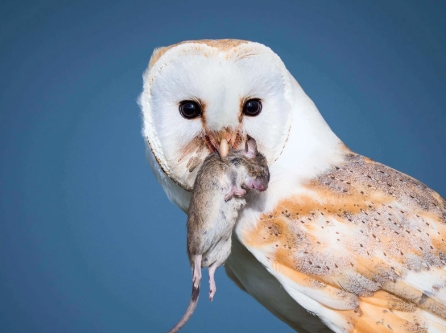The barn owl, known for its haunting call and silent flight, is a top predator in many ecosystems. A major reason for their success is their varied diet, which consists of small mammals, insects, and other prey.
Small Mammals: A Barn Owl’s Main Course
One of the barn owl’s primary food sources is small mammals such as voles, mice, and rats. These animals make up the majority of their diet and are essential for their survival. Barn owls are expert hunters, using their keen hearing and silent flight to catch their prey by surprise. They can consume several small mammals in a single night, making them effective pest controllers for farmers and landowners.
Insects: A Nutritious Snack
In addition to small mammals, barn owls also eat insects such as beetles, moths, and grasshoppers. These insects provide a valuable source of nutrients for the owl, particularly during times when small mammal populations are low. Barn owls have been known to consume large quantities of insects during summer months when their preferred prey is scarce.
Other Prey: A Varied Diet
Barn owls have been found to consume a wide range of prey, including birds, reptiles, and even fish. While these animals may not make up a significant portion of their diet, they provide the owl with essential nutrients and help to supplement their main food sources. This varied diet is one reason why barn owls are so resilient and adaptable to different habitats.
Why Do Barn Owls Eat What They Eat?
The diet of the barn owl is largely influenced by the availability of prey in their environment. They are opportunistic hunters, meaning they will eat whatever is most readily accessible. Their keen hunting abilities and diverse diet allow them to thrive in a variety of habitats, from grasslands to forests.
In conclusion, the barn owl’s diet of small mammals, insects, and other prey plays a crucial role in their survival and success as a predator. By consuming a wide range of food sources, barn owls are able to adapt to changing conditions and ensure their continued existence in the wild.

